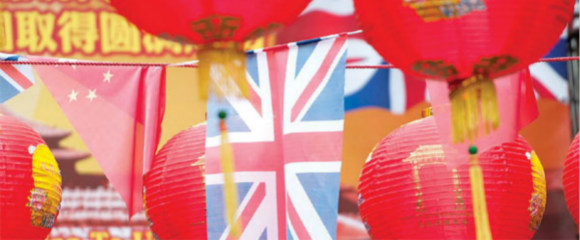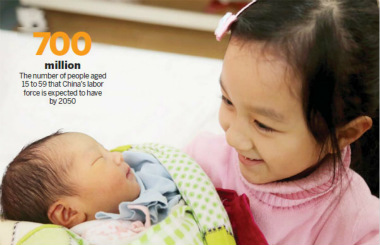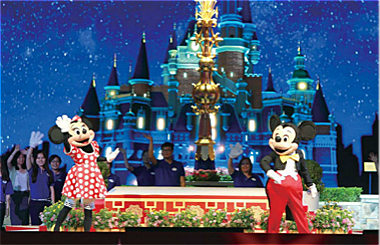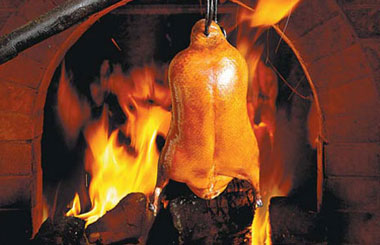Taiwan voters hit the polls to elect the island's new leader
Updated: 2016-01-16 09:26
(Xinhua/chinadaily.com.cn)
|
|||||||||||
TAIPEI -- Voting stations in Taiwan opened on Saturday as the island looks to elect a new leader and legislature.
Polls started at 8:00 am with the official announcement of the results coming at about 10:00 pm.
Voter sentiment is weighed down by uncertainties surrounding post-election cross-Straits stability.
Liu Tung-lung, a retired senior government official and member of the Kuomintang (KMT), told Xinhua that he was anxious, not about the election result but the uncertainty of the island's future relations with the mainland.
"I would be upset if Eric Chu [the KMT candidate] lost the election, but I could live with that. The KMT has lost before," he said. "What worries me most is Tsai Ing-wen's [Democratic Progressive Party candidate] cross-Straits policies, especially her stance on the 1992 Consensus."
Candidates' cross-Straits policies have been under close scrutiny since the campaign started, especially in the televised debates. Both Chu and James Soong of the People First Party clearly expressed support for the 1992 Consensus while Tsai has remained ambiguous, so far.
Tsai has repeatedly promised to maintain cross-Straits relations and in her campaign rally in Kaohsiung on Thursday she reiterated that if elected she would try her best to maintain cross-Straits stability. Yet she has avoided a clear statement on the 1992 Consensus.
On several occasions, including TV debates, she said the DPP acknowledged the historical meeting in Hong Kong in 1992 but claimed that the 1992 Consensus was "not the only option but one of the options."
Denying the 1992 Consensus means denying the foundation of cross-Straits relations in the past two decades, Liu said.
"If the elected leader held such a stance, I would be worried about our future," he said.
Several political heavyweights have expressed similar concerns. In his New Year's Day speech, Ma Ying-jeou, the island's current leader, called on his successor to carry on the current cross-Straits policies and value the 1992 Consensus.
Hau Pei-tsun, former head of Taiwan's executive authority, said in an earlier public speech that voters should choose whoever upholds the 1992 Consensus and abandon those who disagree with it.
The two sides of the Taiwan Straits had establish certain mutual trust since 2008 mainly because the KMT accepted the 1992 Consensus, said Tang Shao-cheng with Chengchi University, Taipei.
"If the DPP candidate was elected and continued to avoid the issue, such mutual trust would be seriously undermined and this would bring huge uncertainty to the relationship," he said.
For ordinary Taiwan residents, a safe and peaceful society and vigorous economy are the biggest concerns.
Lien Chih-ching, a Taipei bank clerk, told Xinhua that since the economic situation is not promising now, people are hoping that closer cross-Straits cooperation can help boost Taiwan's economy.
"People like me can only benefit if we live in a peaceful society with economic opportunities," he said, adding that no matter which candidate wins the election, he or she has to face this reality.
Yang Li-de, a Taipei businessman, said that he expects cross-Straits relations not to return to what it was before 2008 if the DPP wins. "The two sides should not set a ceiling for economic cooperation. I hope the relations can continue to advance."
Since 2008, the two sides have held 11 rounds of talks and signed 23 agreements including lifting bans on direct shipping, air transportation and postal services in 2008, and the long-awaited Economic Cooperation Framework Agreement in 2010. The two sides also lifted the ban on mainland tourists to the island.
About 3.22 million mainland tourists visited the island in 2014 and in the first nine months of 2015 the figure reached 3.11 million.
Wang Chih-ching, a taxi driver in Kaohsiung, has been a long-time supporter of DPP but he admitted that mainland tourists have brought him more business.
"I hope cross-Straits exchanges will not cease and more mainland tourists come to visit after the election," he said.
Today's Top News
Chinese firms making inroads in UK
Value addition
IS claims Jakarta attack, targets Indonesia for 1st time
Chinese people most optimistic in global survey
COSCO offers 700m euros for Greece’s Piraeus Port
Istanbul bomber entered Turkey as refugee
Bird flu case confirmed in eastern Scotland
Cosco poised for Piraeus control
Hot Topics
Lunar probe , China growth forecasts, Emission rules get tougher, China seen through 'colored lens', International board,
Editor's Picks

|

|

|

|

|

|






